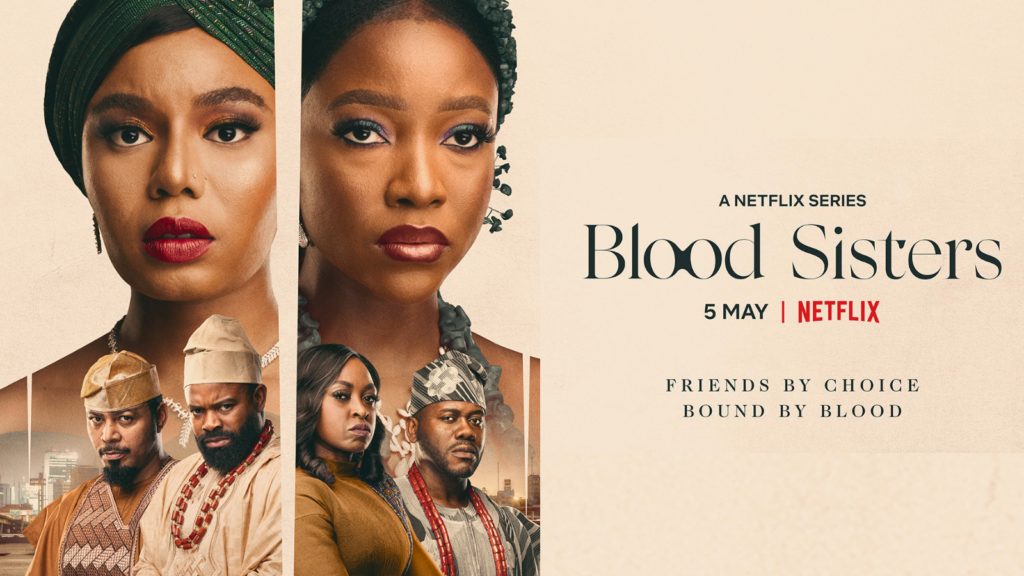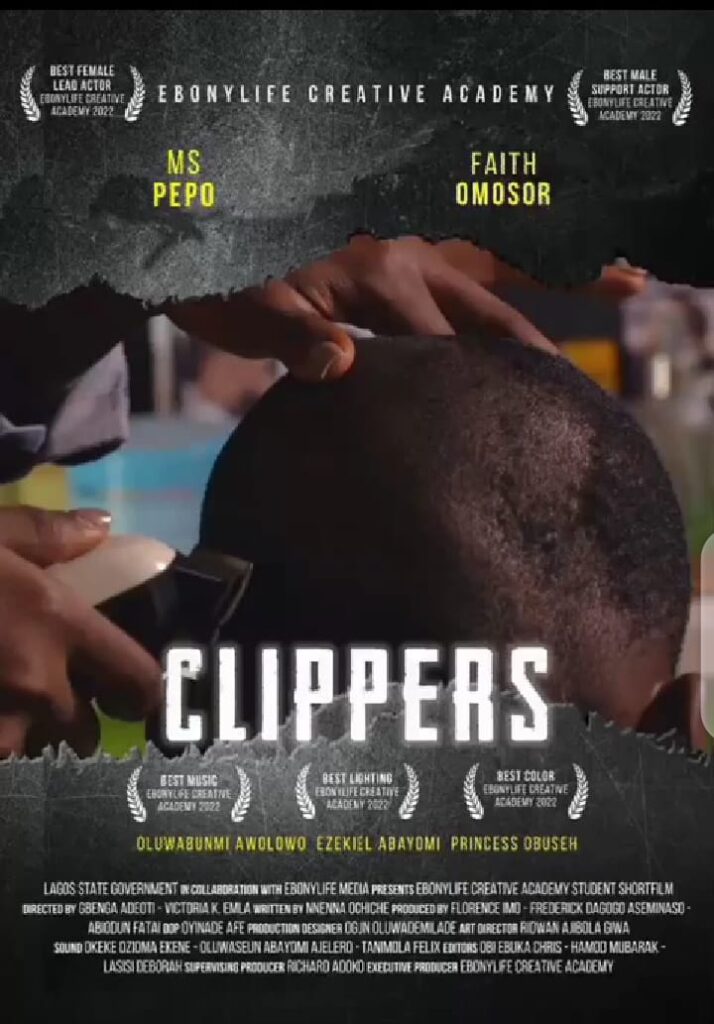Blood Sisters (2022): A Wrong Step in the Right Direction
Icon of American Cinema, Frank Capra, once said, “There are no rules in filmmaking. Only sins. And the cardinal sin is dullness.” To a large extent, I agree with him. Even with experimental arthouse films, there has to be some element which sustains the interest of the audience, causing them to decide whether or not to see a film through to the end. It could be aspects such as a unique story world, compelling characters, an intriguing plot, a haunting atmosphere, or the sheer dexterity with which all of these elements are combined. Dullness implies a lack of creative vision revealed in the inability of a film to arouse curiosity or interest in the viewers. At the time of writing this review, the latest outing from EbonyLife Studios, is sitting in the ninth position in the Global Top 10 titles from the first week of May, clocking in about 11 million hours of watch time. Blood Sisters is far from dull. Far from the severely uninspired titles that have plagued and continue to plague the industry. Still, the miniseries is not without its problems. Ini Dima-Okojie (Sarah) and Nancy Isime (Kemi) are the titular blood sisters. The tagline of the series describes their situation: “Friends by choice…Bound by blood.” Along for the ride are a host of esteemed Nollywood actors in major as well as minor roles: Uche Jombo, Toying Abraham, Joke Silva, Segun Arinze, Toke Makinwa, Wofai Fada… Kehinde Bankole and Gabriel Afolayan are Olayinka and Demi Ademola respectively. Their plan to kill Kola and take over the family business goes spectacularly awry. Deyemi Okanlawon is Kola Ademola, Sarah’s abusive fiancée. On the morning of their traditional marriage, Kemi shoots him dead while he is assaulting Sarah. This inciting incident kicks off the story and leads the friends on a harrowing journey filled with blackmail, organ harvesting, a murderous bodyguard and the full might of the police force. The opening scene does a good job introducing and establishing all the relationships between the characters. It helps that these roles are played by familiar faces, all of whom bring their A-game. The costumes are rich and provide a colorful ambience to the opening scenes, until after everything goes wrong, and Sarah and Kemi change into something fashioned from plastic garbage bags. Blood Sisters consists of four one-hour episodes, of which acclaimed filmmakers, Kenneth Gyang and Biyi Bandele direct two each. Six people are given story credit: Craig Freimond, Zelipa Zulu, Mo Abudu, Temidayo Makanjuola, Heidi Uys, and Tamara Aihie. The is the first thing Blood Sisters gets right. That it creates a division of labour in the creative process. A miniseries is a slightly different ball game than a film. The script can run into hundreds of pages and the director might struggle with putting together a cohesive work as far as theme and tone are concerned. Blood Sisters, in choosing to not put all the weight on one person, sidesteps this issue, at least on the surface. One of the major criticisms levelled against King of Boys: The Return, and the second season of Euphoria is that because all their episodes are written and directed by the creator-showrunner, the plot points and characters begin to feel a bit rote after a while, as if trapped on a narrative merry-go-round. It’s not unusual or unwelcome for one person to write and direct all the episodes in a series; however, one thing a writer’s room can give is perspective. Blood Sisters uses this to its advantage to keep the plot interesting and maintain the momentum. At the same time, you wish the series stopped once in a while to create meaningful moments where the characters are actually allowed to grow. This is the first wrong step the series takes. For an intriguing plot does not a good movie make. The Characters are One-Dimensional A while ago, I wrote an essay on King of Boys (2018) and titled it, “Lagos Noir, Feminism on Film and the Cinema of Excess.” In the article, I explored how the film subverts noir tropes (while taking advantage of the style) and expresses its themes through masterful storytelling techniques, the most important of which is characterization. The film, in several scenes, paints a vivid picture of Eniola Salami— her wants, needs, fears, and backstory. This way, even though the audience might not approve of her brutal and bloody way of life, there is still a good understanding of the reason it exists in the first place and what is at stake if she chooses to turn her back on it. No such character exists in Blood Sisters. The closest we come to sympathizing with any of them is when we get to know Timeyin (Genoveva Umeh; impeccable casting) over the course of the runtime. For the most part, we are held at arm’s length, unable to get an in into the characters. This happens especially with our protagonists. There are several scenes of them plotting and planning and reminiscing on their childhood but for the most part, these all feel inert and by-the-numbers. The characters’ decisions don’t feel justifiable either. The movie wants us to root for the girls but hardly makes a case for why. Uduak and are mean boss-ladies who are willing to murder people in cold blood. But again, the question here is why? Kate Henshaw and Kehinde Bankole deliver some of the best performances of their careers but their characters don’t amount to more than what you see on the surface. Apart from a couple lines of dialogue, we don’t get the necessary context to understand the characters’ motivations. They end up becoming little more than moustache-twirling cartoon villains, evil for evil’s sake. When Femi tells Yinka, “I don’t even know who you are anymore,” I was a bit confused. Was she ever a good person? As far as we’d seen? She was willing to kill his brother in cold blood– and even rejoiced at his death, and he’d had to tell


